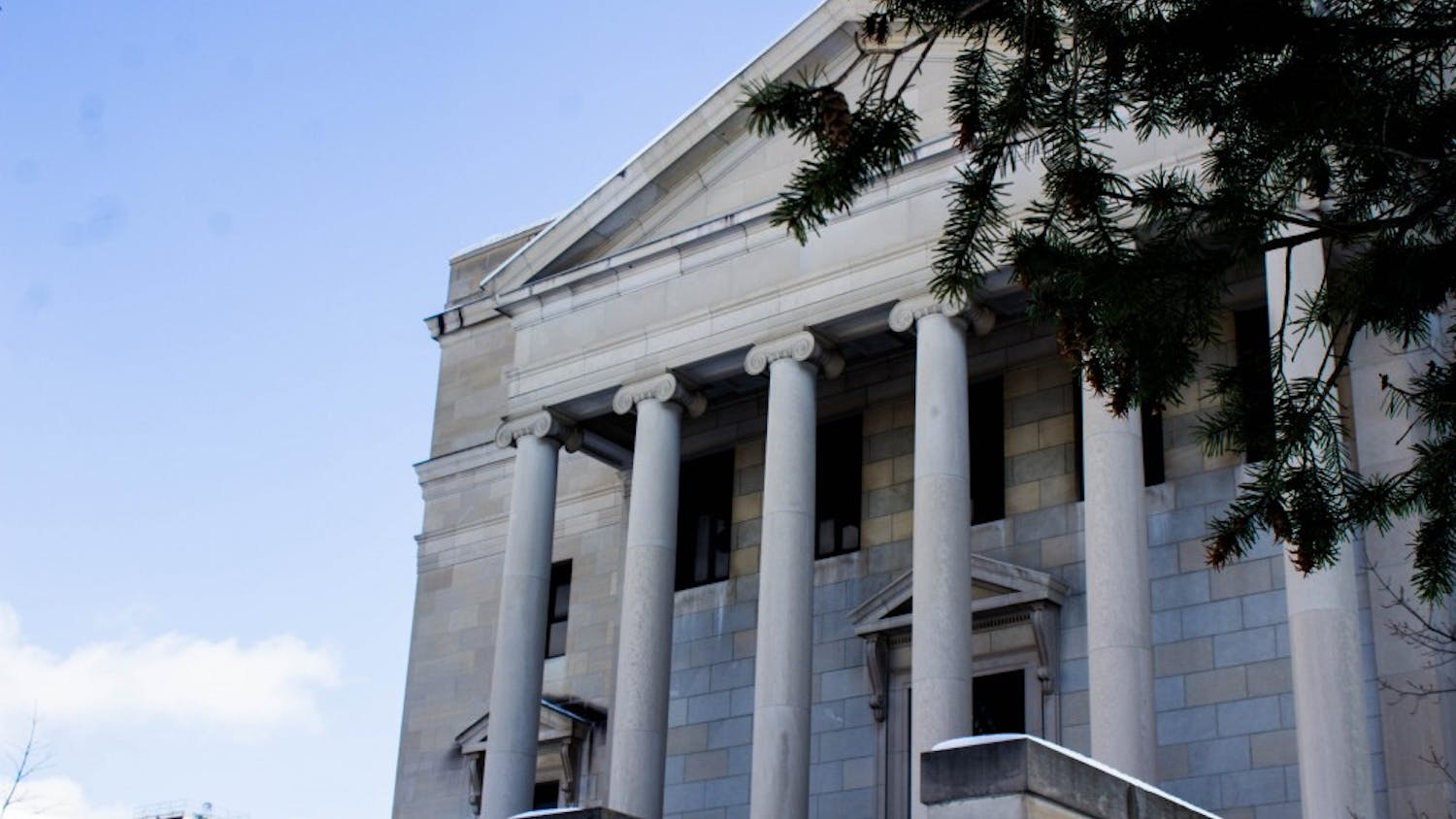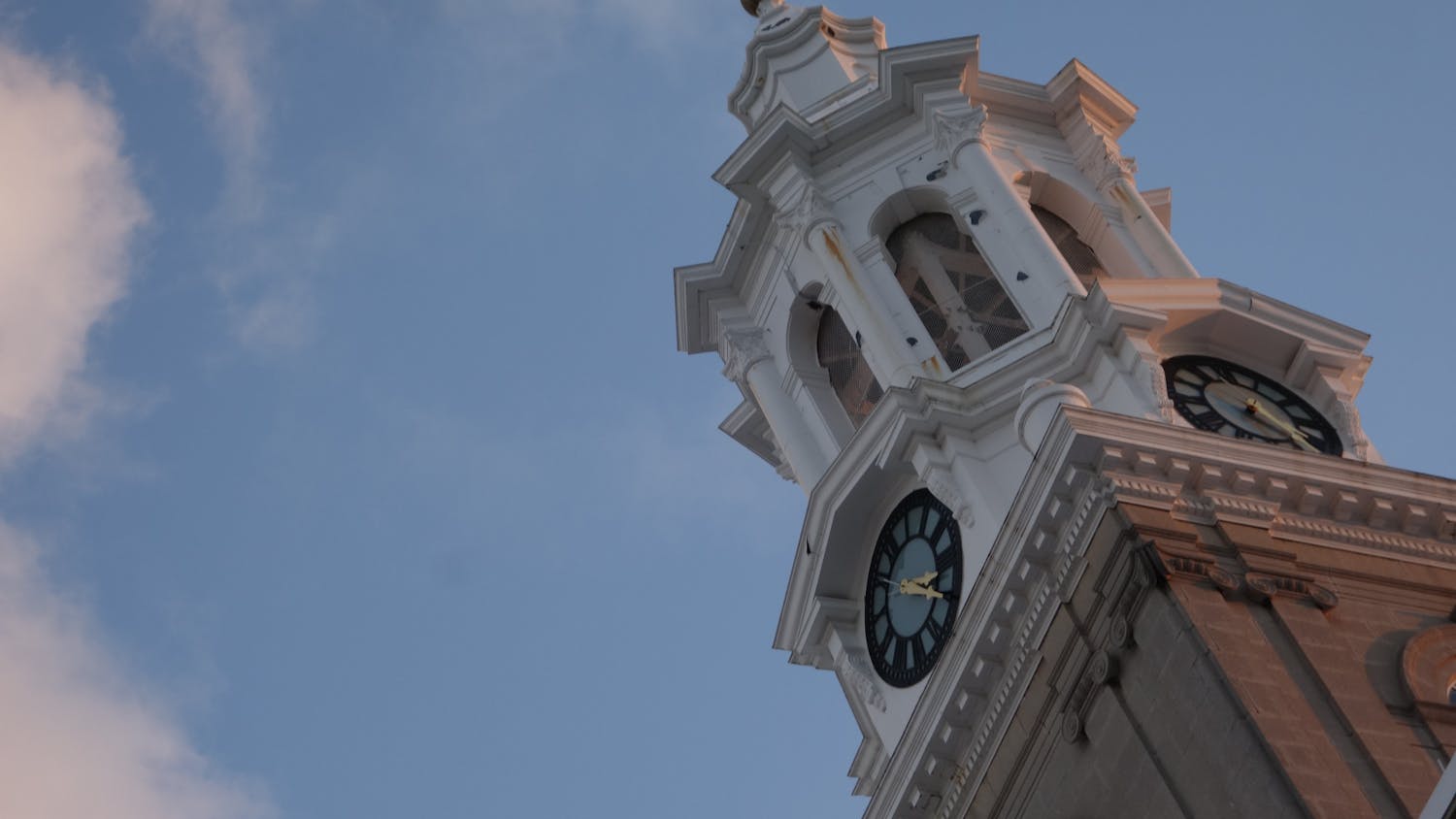Roughly 50 protesters marched to UB President Satish Tripathi’s office on Wednesday afternoon, leaving a coffin and a petition on the front desk.
The protesters, led by the Graduate Students Employees Union, marched to the fifth floor of Capen Hall following a series of speeches on the field between UB Commons and Clemens Hall. The group consisted of UB faculty members, undergraduates and graduate students, protesting on-campus wages, stipends and job security on campus. The GSEU held the rally to commemorate International Workers’ Day and the “Petition for TA Living Stipend,” which the group left at the front desk of the administrative offices in Capen Hall, had over 1,500 signatures on it, according to Willis McCumber, the media coordinator for the Living Stipend Movement. Graduate students first presented the petition in September 2017.
UB responded to the protests, saying it was a “fundamental value of UB that all members of the university community have a right to peacefully protest and express their views and opinions.”
Tripathi was not in his office during the rally, as he is out of town, according to UB officials.
The group gathered on the field next to UB Commons at 12 p.m. while graduate students, LSM members, English professor Jim Holstun and undergraduate student Phoenix Cherny gave speeches about their experiences at UB.
A coffin made out of plywood which read “END THE DEATH FEE” sat on the field next to the mass of protesters.
Michael Morse, a physics Ph.D. candidate, built the coffin himself and said the “death fee” is a reference to the "medical repatriation fee" international students pay in the event they die in the U.S.
University spokesperson John DellaContrada wrote in an email that repatriation is covered by international students’ SUNY-required health insurance and is "not a fee" international students pay.
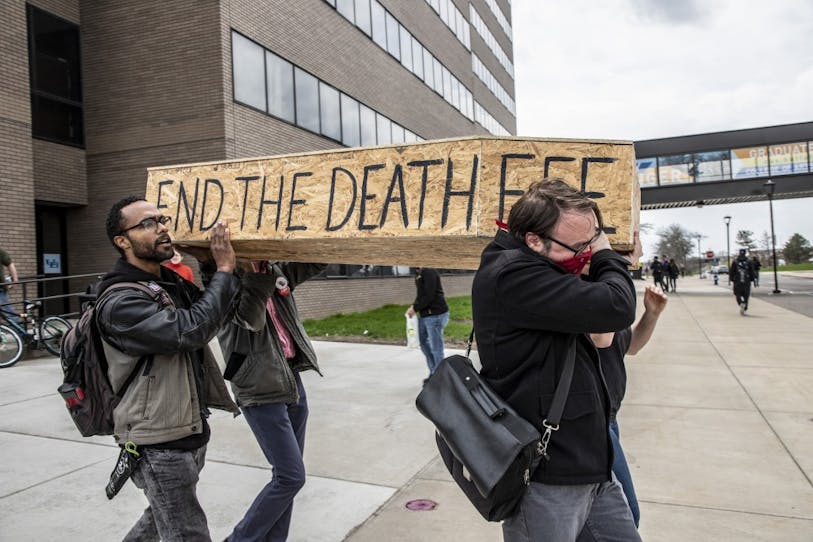
Protestors carry a coffin while marching to Capen Hall.
McCumber called it “deeply discriminatory.” During the rally, he discussed how visa restrictions and graduate student stipends, affects international students’ financial situation.
“International students are barred due to visa restrictions from having a second job,” McCumber said into a megaphone during the rally. “So we have international students in Buffalo [living] on $14,000 a year. That’s not a living wage.”
Katie Tudini, the assistant vice provost and director for International Student Services, wrote in an email that the fee is covered by international students’ medical insurance through United Healthcare.
“The international student medical insurance covers both medical coverage as well as repatriation and evacuation, as mandated by SUNY,” Tudini wrote.
International student Garvita Agarwal, a physics Ph.D. candidate, said she took out loans in India, her home country, but has struggled to pay them back due to graduate and international student fees.
“The only way I’ve been able to [pay the loans] has been through extra scholarships I apply to,” Agarwal said. “Which again, are not available every semester and not available to everyone.”
Faculty members were also present at the rally, with Holstun giving a speech on the history of May Day and labor movements.
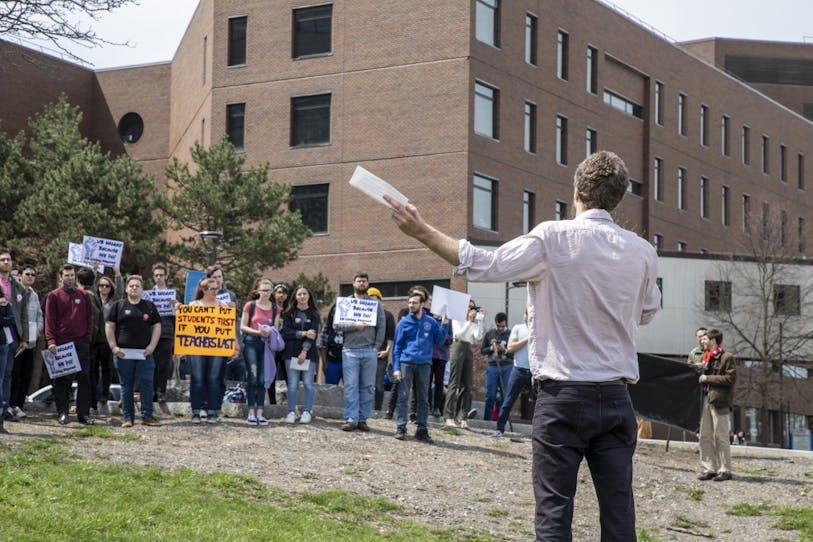
History professor Susan Cahn also attended the rally, and said she came out because she’d "like to see graduate students get a living wage.”
Cahn said graduate TA stipends are related to wages for adjunct faculty as well, and said this is due to a shift away from tenure track faculty toward "contingent labor."
The university paid adjunct faculty an average of $9,200 per semester in 2016, with “variation” across disciplines, according to UB’s website.
Cahn said she was pleased to see graduate and undergraduate students working together.
“I was glad to see that graduate students were beginning to work with undergraduate students about issues of living wages for workers on campus,” Cahn said.
McCumber, who stood in the Student Union last week asking people to sign the Living Stipend petition, also spoke about undergraduates’ support for the rally.
“You just explain to [undergraduates] what the situation is and they’re like ‘Oh, yeah, that makes sense,’” McCumber said. “It's quite heartening because they follow it, they care about it and they know about it.”
Cherny, a senior computer science major, is a member of UB’s chapter for Young Democratic Socialists of America, and said they participated in the rally to show solidarity for graduate students who are paid “poverty wages.”
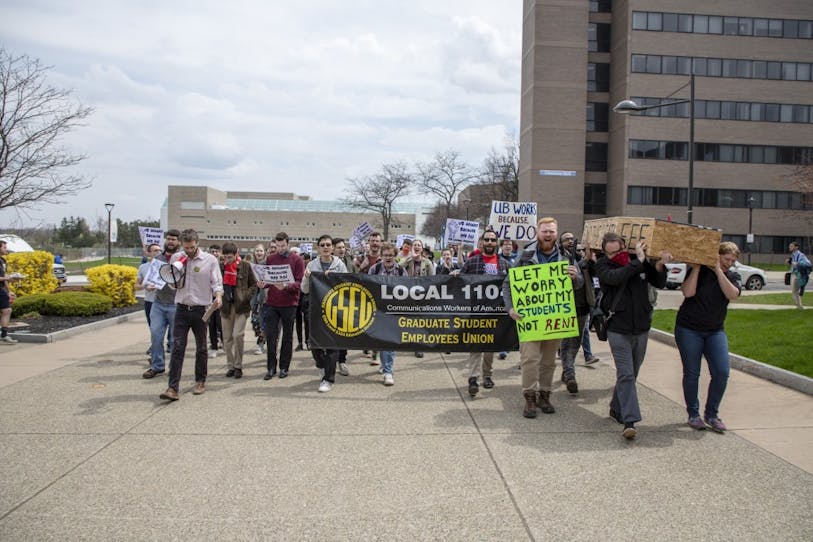
“As undergraduates, knowing that the people providing your education are being neglected … it’s disrespectful,” Cherny said. “We’re talking about excellence while paying people poverty wages.”
Other SUNY GSEUs have held similar rallies or plan to voice discontent with graduate stipends and fees this week.
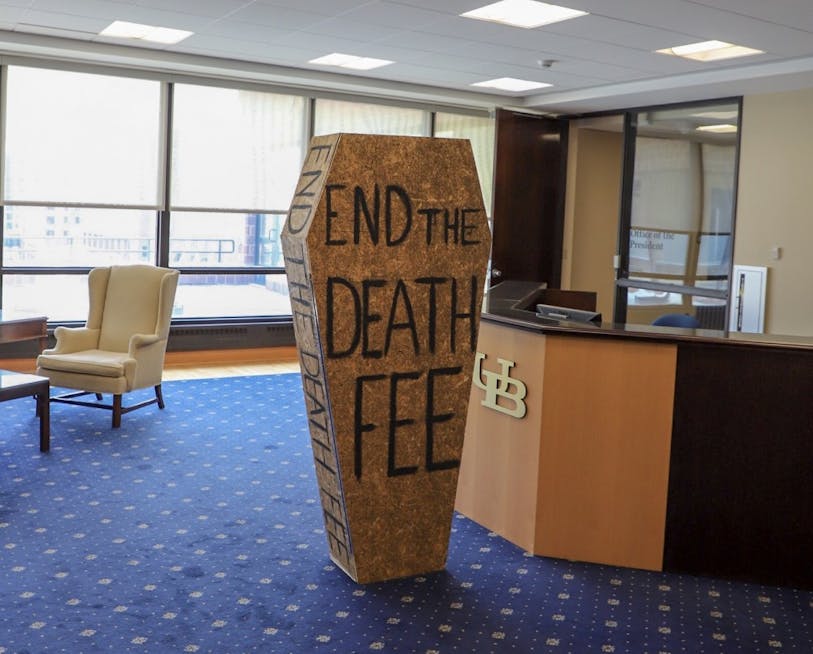
Caroline Propersi-Grossman, the chief steward for the SUNY Stony Brook GSEU, said the group also organized a protest that had a turnout of over 400. Stony Brook’s protest focused primarily on graduate student fees, in addition to graduate stipends.
Samantha Rider, the business agent for the SUNY Albany GSEU, said the group planned to attend a meeting on Friday to ask their administration about the university’s budget.
Correction: Graduate students first presented the petition in September 2017, not last February as a previous version of this article states. Correction: A previous version of this article did not clarify that medical repatriation is covered by international student health insurance.
Tanveen is a co-senior news editor and can be reached at tanveen.vohra@ubspectrum.com and on Twitter @TanveenUBSpec
Tanveen Vohra is a former senior news editor and covered international relations and graduate student protests.



